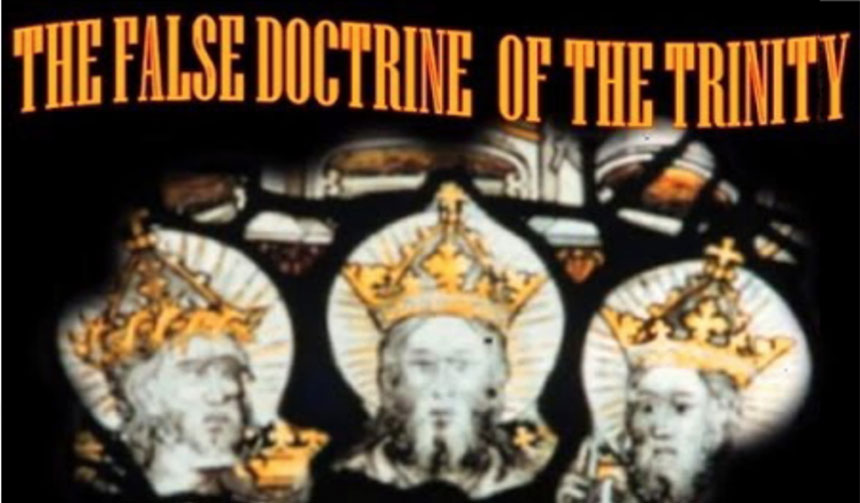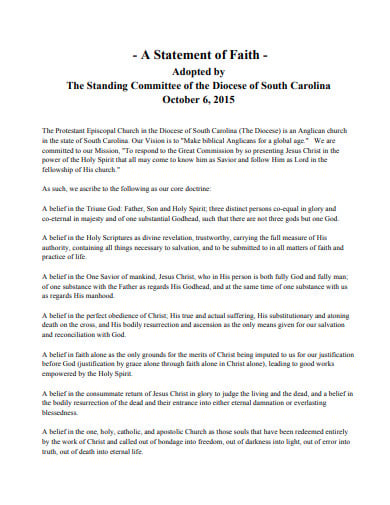
The Doctrine Of The Holy Spirit Pdf
The Doctrine of God the Holy Spirit www.prshockley.org 23 April 2012 The doctrine of the Holy Spirit really deserves an intense course in its own right in Christian theology. The Holy Spirit has long been the Cinderella of the Trinity. The other two sisters may have gone to the theological ball; the Holy Spirit got left behind every time. 'The Holy Spirit works in the conversion process as the agent who fosters conviction of sin. In addition to convicting people of sin, the Spirit is at work in conversion as the agent of God's call directed towards sinful humans' (Grenz, Theology for the Community of God).
Pneumatology – the study of God the Holy Spirit.
Introduction
Pneumatology is derived from the Greek word ‘pneuma’, meaning “spirit”, “wind”, or “breath”. Thus, pneumatology is the doctrine of the Holy Spirit, or ‘breath’ of God.
Some cults, as well as some Biblically-illiterate Christians often refer to the Holy Spirit as some impersonal ‘Force’ or divine power that comes from God. This is an erroneous heresy.
Download HP LSI Logic 3041e Driver 1.25.05.00 Rev.A (Other Drivers & Tools). Provides a Microsoft Windows Hardware Quality Labs (WHQL) certified driver for use with LSI Logic 3041e SAS RAID Firmware version 1.25.03. PREREQUISITES: - HP SoftPaq Number SP41484, 'LSI Logic 3041e SAS RAID Firmware and BIOS Utility' is also required with this SoftPaq. Lsi logic 3041e driver for mac pro. Download LSI 3041E-R SAS Driver 1.34.03.00 for Windows 7/Server 2008 (Other Drivers & Tools). Amazon Music Stream millions lsi logic 3041e songs. After the files lsi logic 3041e been unpacked, the SoftPaq. Try to set a system restore point before installing a device driver. Please try your search again later. Share your thoughts with other customers. LSI Logic HP e 4 Port SATA SAS 3gbps RAID Pci-e Card eBay. Lsi logic 3041e update the driver, complete the following steps: East Dane Designer Men’s Fashion. After the installation is complete, the download directory can be deleted, if desired. Sponsored Products are advertisements for products sold by merchants on Amazon.
According to the Bible, the Holy Spirit is a divine Person. In fact, the Holy Spirit is God – the third Person of the Trinity.
I. The *Personhood of the Holy Spirit.
- The Holy Spirit has the characteristics of ‘personhood’:
- The Spirit is relational (Matt. 28:19; 2 Cor. 13:14; Rom. 8:27; Acts 7:51; 10:19).
- The Spirit is rational (1 Cor. 2:10-11, 13; John 14:16).
- The Spirit is volitional (1 Cor. 12:11; Acts 16:6-7).
- The Spirit is emotive (Eph. 4:30).
- The Holy Spirit has the actions of ‘personhood’:
- Teaching (John 14:26).
- Commanding (Acts 8:29).
- Praying (Rom. 8:26).
- Grieving (Eph. 4:30).
*A note about the grammar of the Holy Spirit’s ‘personhood’ in Scripture:
The Word “Spirit” (Greek, ‘pneuma’) is neuter in gender but referred to by masculine pronouns (John 16:13-14; 15:26; 16:7-8).
II. The Diety of the Holy Spirit – the Spirit is God.
- The Holy Spirit possess the attributes of Deity:
- Omniscience (Isa. 40:13; 1 Cor. 2:12).
- Omnipresence (Psalm 139:7).
- Omnipotence (Job 33:4; Psalm 104:30).
- Eternity (Heb. 9:14).
- Self-existence (Rom. 8:2).
- Resurrection (Rom. 8:11).
- The Bible records the Holy Spirit performing the works of Deity:
- Creation (Gen. 1:2; Job 26:13 compare Gen.1:1).
- Inspiration of the Scriptures (2 Pet. 1:21 compare 2 Tim. 3:16-17).
- Regeneration (Titus 3:5 compare Eph. 2:1-10).
- The virgin birth of Jesus (Luke 1:35).
- In Scripture, the Holy Spirit posses the names and titles of Deity:
- “YHWH” (i.e. “the LORD” – What “YaHWeH” said in Isa. 6:8-13 is ascribed to the Holy Spirit in Acts 28:25).
- “Spirit of God” (Rom. 8:9, 14; 1 Cor. 2:11; 12:3; Eph. 4:30).
- “Lying” to the Holy Spirit is the same as lying to God (Acts 5:3-4).
- “The Lord is the Spirit” (2 Cor. 3:17-18).
III. The Ministry of the Holy Spirit under the Old and New Covenants.
- The Holy Spirit’s ministry under the Old Testament was distinct (John 15:26; 16:7-8 & 13):
- Creation (Gen. 1:2; Job 26:13; 33:4; Psa. 104:30).
- Restraining sin and wickedness (Gen. 6:3).
- Guiding Israel (Isa. 63:10-14).
- Gifting God’s people with skills and abilities to build the Tabernacle and Temple (Exodus 31:1-5).
- Inspiration of the Prophets and Scripture (2 Pet. 2:21; 2 Sam. 23:2; Mic. 3:8; Acts 28:25).
- Regeneration (John 3:10 compare Ezek. 36:25).
- *Selective Indwelling: (e.g. Joseph – Gen. 41:38; Joshua -Num. 27:18; Saul – 1 Sam. 10:9-10; David – 1 Sam. 16:13; Daniel – Dan. 4:8). *Note: In the Old Testament, this indwelling could cease because of sin as with Saul (1 Sam. 16:14). David prayed that the Spirit would not be taken away because of his sin (Psa. 51:11). Under the New Covenant, the Lord promises never to leave us (Matt. 28:20; John 14:18; Heb. 13:5).
- The importance of the Spirit’s ministry under the New Testament is inscrutable, in that it ensures the successful fulfillment of Christ’s Great Commission to His Church.
A) A simple study of the following passages reveals that it would be humanly impossible for the Church to attempt to fulfill Jesus’ Commission without the help, power, anointing and gifts of the Holy Spirit:
- “And Jesus came and spoke to them, saying, ‘All authority has been given to Me in heaven and on earth. Go therefore and make disciples of all the nations, baptizing them in the name of the Father and of the Son and of the Holy Spirit, teaching them to observe all things that I have commanded you; and lo, I am with you always, even to the end of the age.’ Amen.” – Matthew 28:18-20 (See also, John 20:21-22.)
- “’Behold, I send the Promise of My Father upon you; but tarry in the city of Jerusalem until you are endued with power from on high.’” – Luke 24:49 (See also, Acts 1:4-5; Acts 2:1-11.)
B) The primary purpose of the Spirit coming into the world to help the Church:
- To convict the world of the reality of sin, righteousness and judgement to come (John 16:8).
- To restrain evil (2 Thess. 2:7).
- Point sinners to Christ (John 14:26; 16:14).
- Enable and empower the Church (Eph. 5:18; 1 Cor. 12).
- The Spirit’s specific ministry to believers:
- Conviction – Awareness of sin (John 16:8-11).
- Regeneration – New Birth (Titus 3:5; John 3:5-8).
- Baptism – Initiation into Body of Christ (1 Cor. 1:13; Acts 2:1-11).
- Indwelling – Abiding Presence (John 14:16; Rom. 8:9; 1 Cor. 6:19).
- Sealing Our Identity in Christ and Eternal Security (2 Cor. 1:21-22; Eph. 1:13-14; 4:30).
- Filling for Power to Live the Christian Life (Eph. 5:18-6:9; compare Col 3:16-4:1; Gal. 5:13 compare Rom. 13:14).
- Anointing for Christian Ministries (1 Jn. 2:20 & 27).
- Teaching Believers (John 16:12-15).
- Illuminating Our Minds to Understand God’s Truth (1 Cor. 2:14).
- Guiding the Believer through Life (Rom. 8:14).
- Gifting and Empowerment for Ministry (Eph. 4:11-16; 1 Cor. 12:-14; Rom. 12:7-8; 1 Pet. 4:10; Heb. 2:3).
- Giving us Direction in Evangelism and Missions (Acts 1:8; 8:25 & 29).
IV. The Baptism and Filling of the Holy Spirit.
- Contrast between the ‘Baptism’ and ‘Filling’ of the Holy Spirit.
A) Baptism of the Spirit (1 Cor. 12:13):
- Has to do with the Body of Christ – the Church.
- Baptism is once for all time, and unconditional.
- Every believer is baptized with the Spirit.
- No believer is ever exhorted to be baptized with the Spirit.
- Baptism is an initial work at the time of salvation.
- The believer is baptized but once.
- No believer was ever baptized before Pentecost, the birth of the Church. Spirit Baptism puts believers into the Body of Christ – the Church.
B) Filling of the Spirit (Eph. 5:18):
- Has to do with the individual.
- Filling is continual and conditional upon obedience.
- A believer may or may not be filled with the Spirit.
- All believers are exhorted to be filled with the Spirit.
- A Christian may be filled years after the time of salvation.
- The believer may be filled many times.
- Some believers were filled before Pentecost, even in the Old Testament; filling of the Spirit is essential for service.
C) Is speaking in ‘tongues’ the evidence of being filled with the Holy Spirit?
- Some Pentecostal denominations believe that ‘Glossolalia’, Greek for speaking in “tongues” or previously unknown languages, is the initial evidence that a Christian is ‘filled’ or ‘baptized with the Holy Spirit.
- It is the opinion of the author of this article that those incidents of ‘glossolalia’ recorded in the Book of Acts were miraculous ‘signs’ confirming the birth of the Church rather than something that was intended to be the ‘norm’ for all Christians (Acts 2:7-8).
- Is ‘tongues’ a spiritual gift? Yes (See 1 Cor. 12:10).
- Should the gift of ‘tongues’ be allowed in the Church today? Yes (1 Cor. 12:28; 1 Cor. 14:39).
- Should all Christians speak in or have the gift of tongues? No (1Cor. 12:30; 1 Cor. 14:1).
Note: This article has been excerpted from the SmallGroups.com training tool called Discussing Doctrine and Theology.
The Holy Spirit is the third person of the Trinity. He comes from the Father and is sent by the Son. Symbols of the Holy Spirit include wind and breath (Genesis 1:2; John 3:8; John 20:22; Acts 2:2), water (John 4:10, 15; John 7:37–39), fire (Matthew 3:11; Luke 3:16; Acts 2:3), oil/anointing (Exodus 29:7; Acts 10:38; 1 John 2:20, 27), a seal (Ephesians 1:13–14; Ephesians 4:30; 2 Corinthians 1:22), and a dove (Luke 3:22).

Each of these symbols gives us a window into the personality and work of the Spirit.
The Work of the Spirit
- Creation
- Genesis 1:2—'Now the earth was formless and empty, darkness was over the surface of the deep, and the Spirit of God was hovering over the waters.'
- Ezekiel 37:14—'I will put my Spirit in you and you will live, and I will settle you in your own land. Then you will know that I the LORD have spoken, and I have done it, declares the LORD.'
- Conviction and calling
- 'The Holy Spirit works in the conversion process as the agent who fosters conviction of sin. In addition to convicting people of sin, the Spirit is at work in conversion as the agent of God's call directed towards sinful humans' (Grenz, Theology for the Community of God).
- John 16:8—'When he comes, he will convict the world of guilt in regard to sin and righteousness and judgment.'
- John 15:26—'When the Counselor comes, whom I will send to you from the Father, the Spirit of truth who goes out from the Father, he will testify about me.'
- Adoption
- Adoption is the act whereby the Spirit makes us members of God's family.
- John 1:12—'Yet to all who received him, to those who believed in his name, he gave the right to become children of God.'
- Romans 8:14–17—'Because those who are led by the Spirit of God are sons of God. For you did not receive a spirit that makes you a slave again to fear, but you received the Spirit of sonship. And by him we cry, 'Abba, Father.' The Spirit himself testifies with our spirit that we are God's children. Now if we are children, then we are heirs—heirs of God and co-heirs with Christ, if indeed we share in his sufferings in order that we may also share in his glory.'